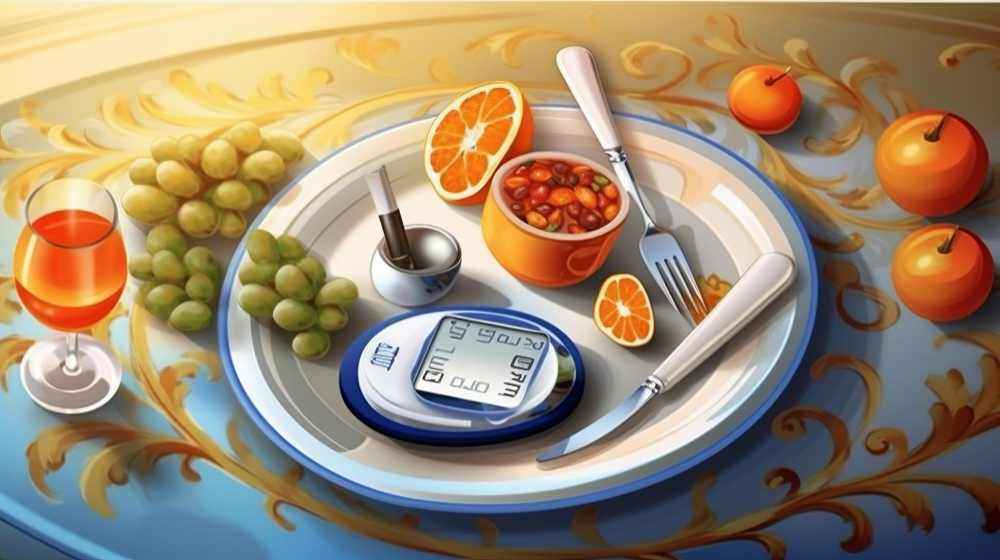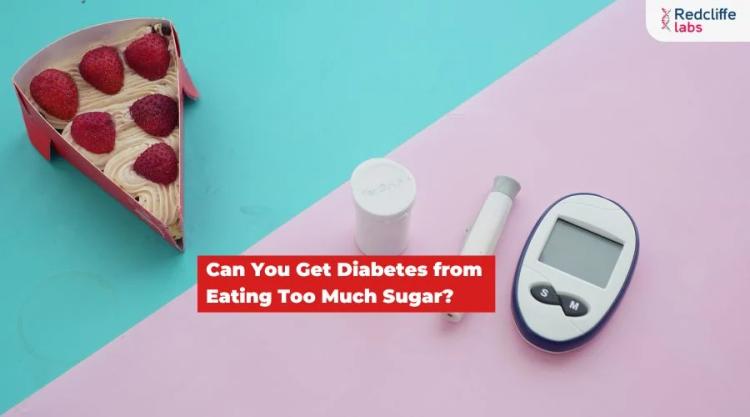7 Factors Affecting Fasting Glucose and Postprandial Glucose Levels: Diet, Exercise, and More

Medically Reviewed By
Dr. Ragiinii Sharma
Written By Kirti Saxena
on May 4, 2024
Last Edit Made By Kirti Saxena
on Jul 19, 2025

Did you know that around 77 million people above the age of 18 years have diabetes, and nearly 25 million are prediabetics?
However, 50% of people are unaware of their diabetic status, which may cause complications if not detected and treated early.
One in six people with diabetes in the world is from India.
However, adults with diabetes have a two-to-threefold high risk of heart attacks and strokes. Diabetes is also a leading cause of kidney failure in India and many other diseases as well.
The above statistics are so unfortunate, but this is the adverse reality.
But why are the statistics so big?
Why is India known as the "diabetes capital in the world"?
Various factors affect glucose levels and lead to diabetes. Let's explore these factors and learn how to manage the chronic condition.
What is the normal range of Fasting Glucose and Postprandial Glucose Levels?
- The normal range of postprandial blood sugar levels is below 140 mg/dL (7.8 mmol/L).
- The normal range of Fasting glucose is between 70 mg/dL (3.9 mmol/L) and 100 mg/dL (5.6 mmol/L).
- The values above 140 and 199 mg/dL (7.8 and 11 mmol/L) indicate that you may have prediabetes.
- The values above 126 mg/dL or higher may indicate diabetes.
7 Factors that Affect Fasting Glucose and Postprandial Glucose Levels
Keeping the blood sugar levels in check is crucial for diabetic or prediabetic people. High or low blood sugar levels may lead to various health complications. However, multiple factors influence these blood sugar levels. Let's understand these factors in detail-
-
Diet
What you eat affects your blood sugar level, so it's important to understand what and how you eat.
- Types of food- Different foods may affect your blood sugar differently. For example, carbohydrates can raise your blood sugar levels. However, slow digestion and absorption of carbohydrates like whole grains or fiber-rich foods may help you maintain your blood sugar levels.
- Timing of food- Taking the meal on time or having a set routine for eating your food is the key to maintaining your blood sugar levels. This may avoid sugar spikes or dips in blood sugar levels.
-
Exercise
Fasting Glucose
Regular exercise can increase insulin sensitivity and cause lower fasting blood sugar levels.
Exercise helps your muscles store more glucose as glycogen, which can also help lower fasting blood sugar levels. Several exercises, like walking, swimming, and cycling, lower blood sugar levels. They also increase the body’s sensitivity to insulin and glucose breakdown.
Postprandial Glucose
Lowers fasting blood sugar levels by increasing insulin sensitivity and muscle glycogen storage. Exercise after meals can raise the blood sugar levels that normally occur after eating. This is because exercise causes your muscles to take up glucose from the blood for energy.
The timing and intensity of exercise can also affect postprandial glucose levels.
However, you can do moderate-intensity exercise after 30-60 minutes of having a meal.
If you have diabetes, talk to your doctor about your best exercise plan.
-
Diseases
Many diseases can significantly impact your blood sugar levels. Certain infections, fever, stress, and other factors can cause low or high sugar levels.
The disease increases the body's energy demand, which may raise blood sugar levels. Stress hormone changes may also directly impact blood sugar levels.
Hyperglycemia (High blood sugar levels)
- Pancreatitis might cause Inflammation of the pancreas, which can damage insulin-producing cells.
- Thyroid- An overactive thyroid (hyperthyroidism) can increase blood sugar levels.
- Polycystic Ovary Syndrome (PCOS): This hormonal imbalance can cause insulin resistance.
- Certain Medications- Some medications, like steroids, can raise blood sugar levels.
Hypoglycemia (Low Blood Sugar)
- Certain Medications- Insulin and some diabetes medications can cause hypoglycemia if taken in excessive amounts.
- Liver Disease- The damaged liver can't store and release glucose effectively.
- Kidney Disease- Advanced kidney disease can affect the body's ability to remove waste products, including excess glucose.
- Severe Infections- The body's response to infection can cause blood sugar levels to fluctuate.
If you are not sure about the symptoms of the disease, then talk to your doctor because several other diseases might affect your blood sugar levels. They can advise you on the best action to manage your situation.
-
Stress
Chronic stress can elevate your stress hormones, which may cause insulin resistance and blood sugar levels. This means your body's cells become less responsive to insulin, making it harder for them to take up glucose from the blood. Stress directly impacts your blood sugar levels, as well as your fasting and after meals.
When stressed, your body releases the cortisol, adrenaline, and glucagon hormones. These hormones work against insulin and lead to higher blood sugar levels.
- Fasting Glucose- The high level of stress hormones due to long-term stress can lead to increased fasting blood sugar levels.
- Postprandial Glucose- Stress can cause a greater rise in blood sugar levels after meals.
-
Menstruation and Menopause
Menstruation and Glucose Impact
Hormone fluctuations during menstruation are normal, but did you know it may impact postprandial glucose levels?
Yes, studies suggest that blood sugar spikes after meals are more prominent during the luteal phase than the follicular phase. This could be due to rising progesterone levels and a slight decrease in insulin sensitivity.
Menopause and Glucose impact
Menopause brings significant hormonal changes that can affect glucose levels. Here is how-
- With age, the production of these hormones lowers, and insulin sensitivity also decreases, which may cause high fasting blood sugar levels and an increased risk of insulin resistance.
- Menopause is a known risk factor for developing type 2 diabetes and impacts the blood sugar levels. However, menopause is linked with weight gain, which may contribute to insulin resistance and higher blood sugar levels.
How to manage?
Monitor your blood sugar levels, especially during and after menopause. Take a healthy and balanced diet, exercise regularly, and manage stress to regulate blood sugar levels.
-
Alcohol
Drinking alcohol directly may negatively impact your blood sugar levels. Drinking too much alcohol mixed with sugary drinks can cause high blood sugar levels. However, drinking a moderate amount of alcohol can cause low blood sugar levels because the alcohol limits the liver's ability to release glucose.
Research shows that when alcohol is consumed alone, it can decrease the rise in blood sugar after eating. This could be due to delayed stomach emptying or altered insulin sensitivity.
How much alcohol consumption is safe?
As per the American Diabetes Association, one drink per day for women and two for men is enough. Diabetic or prediabetic people should consult their doctor before consuming alcohol and never rely on it for blood sugar control.
-
Medications
People with diabetes usually take some medication to keep in check.
Insulin
Insulin is a hormone that regulates blood sugar levels. People with diabetes might need shots of insulin.
Oral medications
Tablets and other oral medications may increase insulin sensitivity, improve insulin production, and also help to improve glucose absorption.
Adjust medication based on sugar levels.
Consult your healthcare provider; they may tweak your dosage based on your blood sugar levels. Take regular blood tests for diabetes to measure your blood sugar levels and manage your medications.
Tips to Maintain your Fasting Glucose and Postprandial Glucose Levels
To maintain your glucose levels, the foremost thing you should do is monitor your blood sugar levels routinely. In addition, follow the below tips-
Try to lose some weight, as obese are more likely to get diabetes
- Exercise regularly to maintain your blood sugar levels and overall body functioning.
- Consume a healthy and nutritious diet rich in a lot of fiber.
- Get a 7-8 good night's sleep.
- Quit smoking and stop drinking.
- Practice stress-reducing techniques
The Key Takeaway
Keep your blood sugar levels in check to maintain your overall body functioning. Fortunately, you have significant control over these levels through your lifestyle choices.
Learn how diet, exercise, stress, hormones, and alcohol consumption can influence your blood sugar and make mindful choices to promote healthy glucose levels.
A diet rich in protein and fiber, regular physical activity, stress management techniques, and regular health checkups can help control blood sugar.



